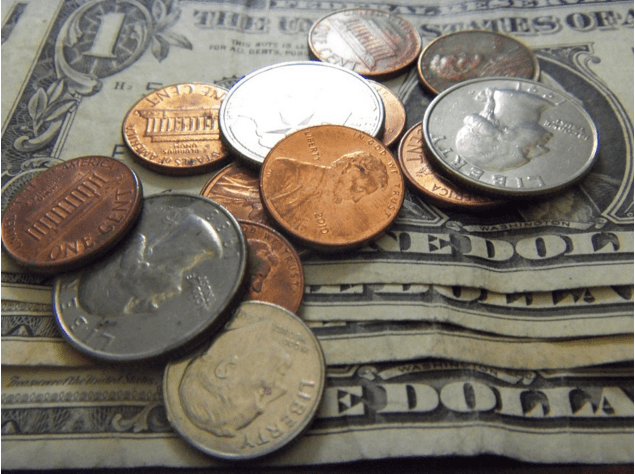Comparison: Money Market vs Savings Account
If you’ve been looking into savings accounts, you may have run into mentions of money market accounts and wondered what they were. The name does not describe itself nearly as obviously as a checking or savings account does.
What does this mysterious “money market” do? Or maybe you have heard about it before but you want to have a clear idea of how the money market vs savings account question stacks in your favor.
Money Market Account vs Savings Account – What’s the Difference?
Both money market and savings accounts offer you a secure location to deposit money that gains interest, but they promise different things.
Savings vs money market deposit amounts:
- Savings accounts typically have small deposit requirements.
- Money market accounts typically have much higher deposit requirements.
Savings vs money market minimum balance requirements:
- Savings accounts typically have small minimum balance requirements.
- Money market accounts typically have much higher minimum balance requirements.
Savings vs money market interest rate differences:
- Savings accounts traditionally offer small interest rates.
- Money market accounts traditionally offer ridiculously higher interest rates.
Another major difference between savings and money market accounts exists: check-writing capabilities. Savings accounts pretty much never offer check-writing abilities, but money market accounts do. This can be a big deal when it comes to your withdrawal options.
Money Market Account vs Savings Account – What’s the Same?



Image Source: Money Market vs Savings Account Comparison
When discussing the savings account vs money market account question, we must address the similarities as well. These types of accounts are actually very much alike.
Savings vs money market comparison:
- They are both interest-accumulating accounts.
- They share the same six withdrawals per month limit required by federal law.
- The income earned from interest with both accounts is taxable.
- They are both widely available at financial institutions.
- The FDIC insures both accounts up to $250,000.
- They both typically expect you to maintain a minimum balance or incur fees.
- You are usually free to make as many deposits as you like into either account.
- Both work with online banking systems and ATMs.
The two accounts are so similar that when asking yourself, “savings vs money market?” it’s probably best to stick to only two points: how much you want to tie up in the bank and whether you need check-writing capabilities.
All-in-One Change Management Tools
Top Rated Toolkit for Change Managers.
Get Your Change Management Tool Today...
How the Accounts Work
Inquisitive and/or skeptical readers may be trying to figure out why the banks offer such different rates for what seems like the same service. The main question when it comes money market vs savings interest rates is what the bank does with the money.
Banks make money from your savings accounts by offering loans to their other customers. This is all they can do with that money by law. With a money market account, banks can invest in certificates of deposit, U.S. Treasuries, municipal bonds, and more.
Money market accounts have this unique ability because of some governmental maneuvering that happened several decades ago. Banks were trying to compete a little too riskily by racing to offer the highest interest rates, and the government put caps in place so banks had to offer limited interest rates on savings accounts. Money market accounts were created in the 1980s when the government saw that their interest rate caps were leading customers to invest in uninsured money market funds. Banks were then allowed to offer new savings accounts that were comparable to these money market funds, and so “money market” insured accounts were born.
The main purpose of the minute differences in money market vs savings accounts is to offer customers the services they need while keeping banks solid enough to continue being a reliable place for you to park your money.
Don’t Miss: What Is Debt Consolidation? – Is It Good Or Bad? (Ways To Consolidate & Explanation)
Pros and Cons: Savings vs Money Market
Benefits of a Savings Account
So, when considering savings vs money market, why should you choose savings? Savings accounts typically work well for people who have smaller amounts of money, who need to retain access to their deposits, and who want the ability to earn interest on their money. If you want to invest only $50, $200, or $500, you will probably need to go with a savings account. Also, even if you have much more money to work with, if you expect that you will need a large chunk of it in a short period of time, a savings account may be the better option.
Disadvantages of a Savings Account
The main disadvantage of a savings account vs a money market account comes down to interest rates. Savings account interest rates tend to be fairly low — low enough that they do not even keep up with inflation. What good are you doing yourself if your money, sitting “safely” in a savings account is worth less than when you put it there?



Advantages of a Money Market Account
You probably need a money market account vs a savings account if you intend on saving a large sum of money with little intention of drawing from it in the near future. Not because they won’t let you withdraw money from your money market account. It’s easier, in fact.
The point is that you make the most of your account:
- If you plan to leave a larger sum in the account.
- When you have don’t have to worry about minimum balance fees.
- When you plan to leave the money for a longer period of time, rather than saving emergency funds or for vacations in the near future.



Image Source: Savings vs Money Market
Disadvantages of a Money Market Account
You may make an unfortunate choice if you select a money market account vs a savings account if you don’t plan on keeping a large sum in your money market account. Not only will your interest rate become less effective, but the minimum balance fees may eat up your profit.
Also, it shouldn’t be too much of a problem, but money market account interest rates fluctuate with the market. You can’t guarantee that the rate will remain exactly the same, but it won’t be because your bank decided to jack the rate up; rather, it is because the money’s worth in the market changed.
Related: What Is Brexit? – Get The Definition & Review (Britain Leaving EU?)
Money Market Accounts vs Savings Accounts: It’s Complicated
In recent years, the money market vs savings account situation has changed — so much so that everything we just explained is a little iffy. Both the differences in rates and the rules have changed. Let’s try to tease this out.
Interest rates on savings accounts have increased so much in recent years that they are sometimes higher than money market rates. This is particularly true with online banks. Your standard brick-and-mortar bank will probably still offer a low, nearly 0% interest rate, but an online bank may offer 1.42% for a savings account vs a money market account with a 0.90% rate. Online banks don’t have the same costs or limitations as far as customer reach that brick-and-mortar banks have, so they can afford to offer much higher rates.
And those rules about minimum balances and even minimum deposit requirements may not be a problem at all. Some banks offer both savings and money market accounts without any balance requirements. BB&T offers an esavings account with no minimum deposit or monthly maintenance fees for keeping a minimum balance. SallieMae provides a money market account with no minimum deposit and no minimum balance requirements.
Now, don’t get completely lost. The lines between savings vs money market accounts are not as cut and dry as we are often led to believe, but the logic we have outlined still applies. You will have to compare savings accounts and money market accounts from various sources to select the optimum account, considering the interest rate you are being offered, the fees you will be charged, and how any minimum balance requirements compare to your budget needs.









Examples of Bank Offerings
Because the lines between savings vs money market accounts have grown so blurred, it will help you if we go over some example bank services.
Nationwide has an interesting policy. Their money market account has a minimum balance requirement of only $1,000 with an $8 fee and a 0.50% interest rate. Meanwhile, their savings account requires a minimum monthly balance of $300 or a monthly direct deposit of $25 to avoid a $3 fee with a 0.30% interest rate.
Synchrony Bank requires no minimum balances on their savings or money market accounts, and the savings account has a 1.05% interest rate while the money market account has a 0.85% interest rate. With them, it appears you would make the choice between the money market account vs savings on the check-writing capability alone.
You might want to check out GoBankingRate for an excellent chart highlighting the best savings vs money market account interest rates. Their figures appear to be up-to-date as of this writing.
Popular Article: What Is a Decent Credit Score? Get All the Facts! (What Is Bad Credit?)
Navigating the Savings vs Money Market Account Question
So, do we have any clarifying answers for you in this savings vs money market debate? Consider online banks for savings accounts and money market accounts rather than only going with what your current brick-and-mortar bank is offering. Concentrate more on the fees and the minimum balance requirements than the interest rate alone to make sure you don’t bite off more than you can chew and end up wasting that lovely interest rate.
Here is a liberating idea for you: you can have a checking account with one bank and a savings account with another if you like your bank for checking but love the interest rate at another. Or, you could have a savings account and a money market account at different banks if you need an emergency fund and a long-term investment — but you might want to weigh out whether that would tie up too much of your money to be worth your while.
If you don’t need a huge interest rate and you want to have more access to your money, remember that some checking accounts pay interest. You might compare savings vs money market vs checking accounts available to you and discover that it fits your financial situation better to find an interest-paying checking account than to open a savings or money market account.
Free Wealth & Finance Software - Get Yours Now ►
Conclusion
The traditional view of savings vs money market accounts held that savings accounts required less of an investment and paid lower interest rates, while money market accounts required a much greater investment and paid much higher interest rates. That has changed, and differences between the two have grown so mismatched that we’re pretty much only left with comparing check-writing capabilities.
Compare rates and policies from all over and think hard about how much money you want to invest and how much of it you need to access before settling on either a savings or money market account.
Read More: What Is Swing Trading? (Basics, How-to, & Strategies)
AdvisoryHQ (AHQ) Disclaimer:
Reasonable efforts have been made by AdvisoryHQ to present accurate information, however all info is presented without warranty. Review AdvisoryHQ’s Terms for details. Also review each firm’s site for the most updated data, rates and info.
Note: Firms and products, including the one(s) reviewed above, may be AdvisoryHQ's affiliates. Click to view AdvisoryHQ's advertiser disclosures.



